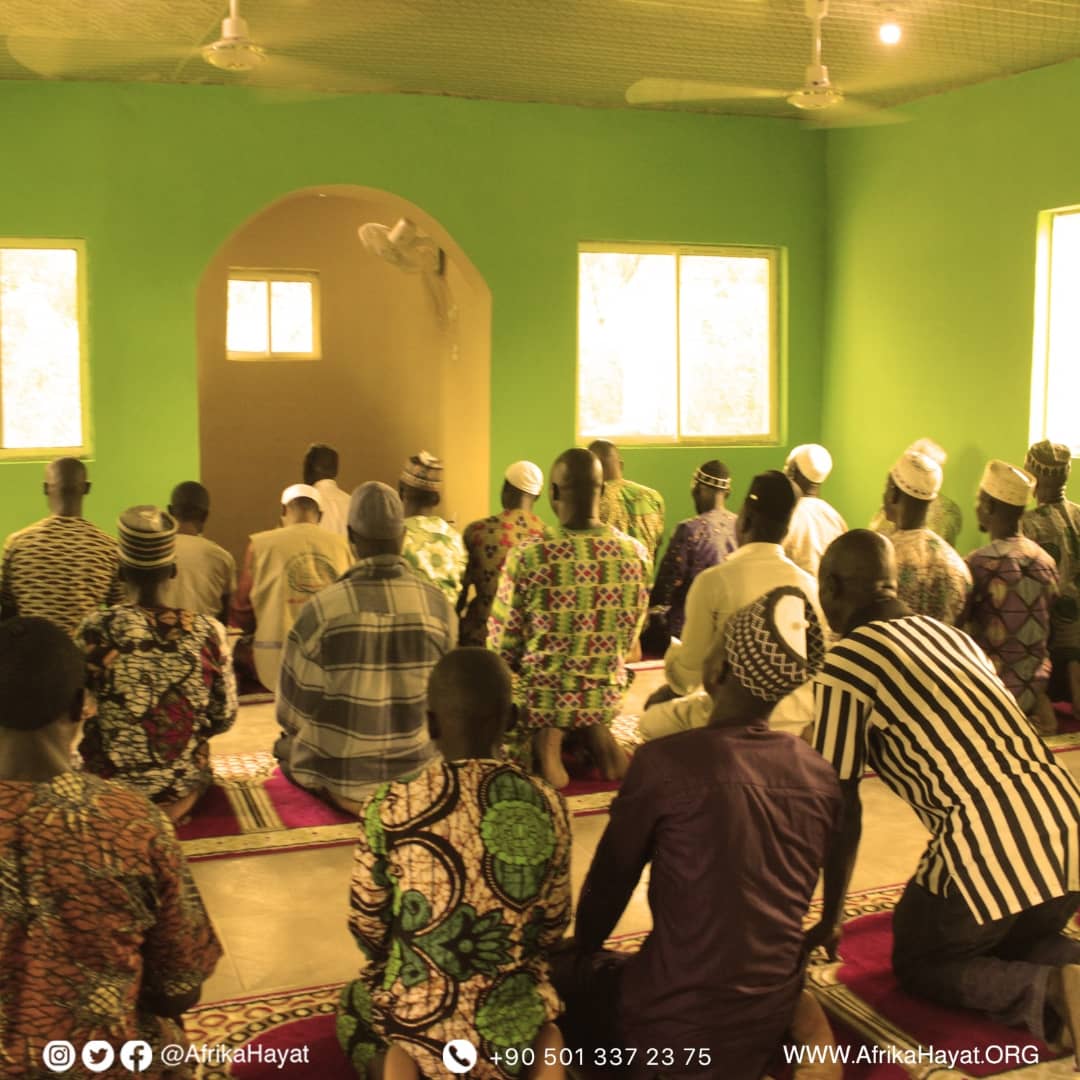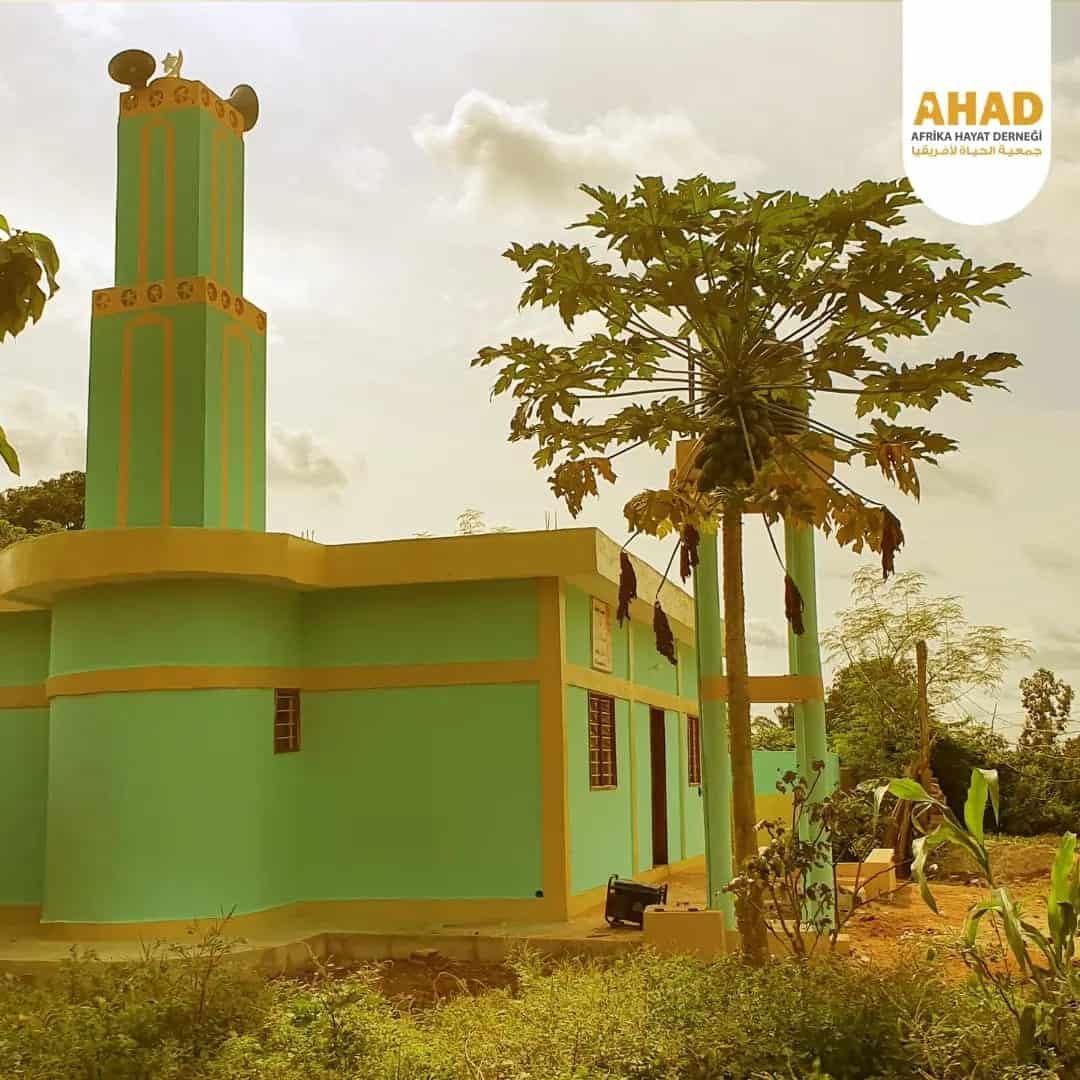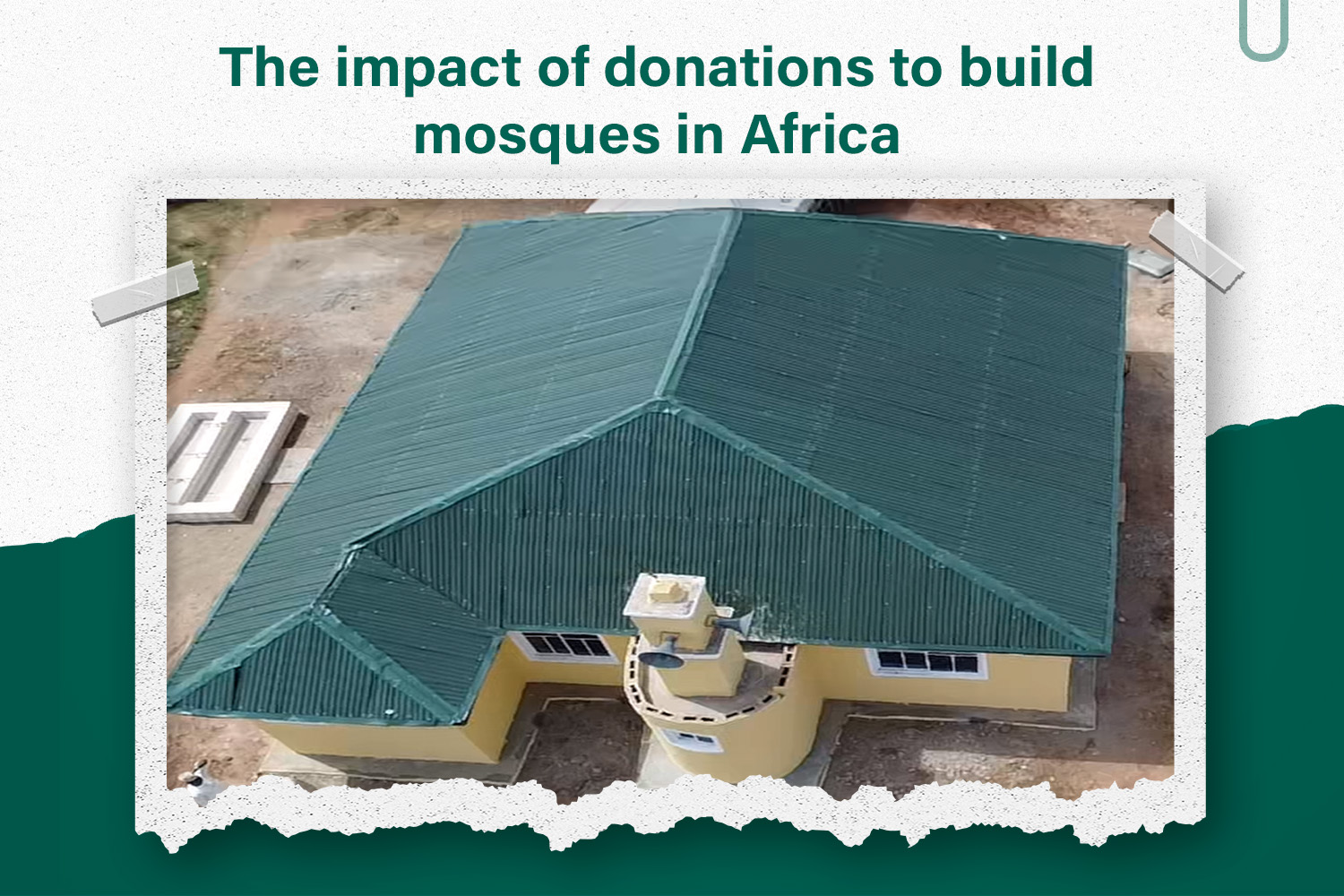Donations for the construction of mosques in Africa are of great importance. They contribute to providing a place of worship for Muslims in areas that lack mosques. In addition, these donations promote unity and brotherhood among Muslims on the continent, give job opportunities to local communities and support the local economy. For this reason, donations for the construction of mosques in Africa are an ongoing charity and ensure a sustainable socio-economic impact in the region.
The importance of mosques in charity and Community Development
Mosques play an important role in promoting charity and the development of communities in Africa. It serves as a center for Muslims to exchange ideas and information, and to promote the spirit of cooperation and brotherhood among members of the community. Mosques also provide many social services, such as providing food assistance, housing and medical assistance. Mosques are a gateway to promoting social justice and philanthropy, and this makes mosque construction donations in Africa an ongoing charity that contributes to promoting community development.
The contribution of donations to the construction of mosques and the provision of a place of worship
Donations for the construction of mosques play a decisive role in the establishment of a place of worship in Africa. Such donations can help in the construction and equipping of mosques, including the purchase of land, the construction of buildings and their furnishing. Thus, Muslims in the community can practice their worship and gather for prayer, promoting unity and brotherhood among Muslims.

Mosques in Africa
Mosques occupy an important place in the life of Muslims in Africa, they are considered centers of worship, religious education and Islamic culture. Mosques are being built to meet the needs of Muslims in society, both in major cities and remote villages. Through voluntary efforts, mosques can be built and equipped with the necessary mosques and facilities to serve Muslims in the best possible way.
History of mosques in Africa
The history of mosques in Africa dates back to many past centuries. The construction of the first mosque on the African continent began in the VII century in the Egyptian capital Cairo. Since then, mosques have spread throughout the continent, and today they are major centers of worship, religious education and Islamic culture in Africa.
The need for more mosques in Africa
Many countries in Africa are experiencing a shortage of mosques available to Muslims. This is due to the increase in the number of Muslims on the continent and the growth of the population in general. In addition, the spread of Islam requires the availability of mosques for worship and religious education. Therefore, there is an urgent need to build more mosques in Africa to meet the needs of Muslims and promote religious and social unity on the continent.
Socio-economic impact of mosque construction in Africa
The construction of mosques plays an important role in promoting unity and brotherhood among Muslims in Africa. The construction of mosques also provides job opportunities for locals and supports the local economy by providing jobs in the fields of construction, maintenance and decorating. In addition, the construction of mosques contributes to the promotion of religious tourism and attracts visitors from home and abroad.
Promoting unity and brotherhood among Muslims in Africa
Mosques play an important role in promoting unity and brotherhood among Muslims in Africa. They provide a place for joint prayer and worship, where Muslims of different nationalities and nationalities gather to perform prayers and spiritual works. Mosques also promote communication and understanding between local Muslims and Muslims coming from outside the country, strengthening social ties and deepening human relations between them.

Creating jobs and supporting the local economy
Donations for the construction of mosques contribute to the creation of employment opportunities for local residents in Africa. When building a mosque, you need many different jobs such as builders, carpenters, technicians and craftsmen. Local workers are hired for these jobs, which strengthens the local economy and contributes to enhancing incomes and raising the standard of living of individuals in society.
Donation projects for the construction of mosques in Africa
Donation projects are one of the most important means that contribute to the construction of mosques in Africa. These projects organize fundraising campaigns from the local community and external donors, and these donations are directed to the construction and equipping of mosques. These projects also raise awareness of the importance of donations and encourage people to contribute to the construction of mosques and ongoing charity, where AHAD society is working on fundraising and construction.
Organizing donation campaigns for the construction of mosques in Africa
Donation projects for the construction of mosques in Africa are organizing fundraising campaigns from the local community and external donors. These donations are used for the construction and maintenance of mosques, the provision of equipment and supplies necessary for prayer and worship. These projects also educate people about the importance of donations and their role in achieving ongoing charity and building mosques that will last for many years.
The impact of voluntary initiatives in achieving the goals
Donation initiatives have a significant impact on achieving the goals of building mosques in Africa. Thanks to the generous donations of local and external donors, the funds are used to build and provide the necessary equipment for mosques. These initiatives also support raising community awareness of the importance of building mosques and promoting unity and brotherhood among Muslims in Africa. As a result, society is positively affected and these mosques have a lasting impact in achieving good and sustainable development.
The challenges of building mosques in Africa
The construction of mosques in Africa faces several challenges. One of them is the lack of funding and financial problems hindering the implementation of projects. Mosques also face legal and procedural challenges in some countries. The construction of a mosque may require obtaining licenses and complex bureaucratic procedures. Therefore, it is important to raise community awareness and support initiatives to overcome these challenges and ensure that mosques are built in a legal and sustainable manner.
Financial problems and lack of funding
Mosque construction projects in Africa suffer from financial problems and lack of funding. It may be difficult to raise the necessary funds for the construction of large mosques and the necessary equipment for them. Charities and foundations that work in the field of construction also face challenges in attracting sufficient donations. It is important to raise awareness of the need of mosques in Africa for financial support and to encourage local communities and Muslims to donate sustainably and continuously.
Legal and procedural challenges in the construction of mosques
Mosque construction projects in Africa face legal and procedural challenges. In some countries, there are legal restrictions on the construction of mosques, which require complex bureaucratic procedures. It can be difficult to obtain the necessary permits, licenses and approvals from local authorities. These legal and procedural challenges should be addressed to facilitate the construction of mosques and promote freedom of worship for Muslims in Africa.
Conclusion
The construction of mosques in Africa is a necessary and urgent matter to meet the needs of Muslims in society. It enhances the socio-economic role of the mosque and promotes unity and brotherhood among Muslims. Therefore, the continuation of donations and contributions to the construction of mosques in Africa is crucial to ensure the continuation of this sustainable positive impact and benefit Muslims and the local community in general.
The importance of continuing donations for the construction of mosques in Africa
The continuation of donations and contributions to the construction of mosques in Africa is extremely important. This support contributes to meeting the needs of Muslims in the community and providing a place for worship and religious learning. It also contributes to promoting unity and brotherhood among Muslims and promoting the socio-economic goals of mosques in society. Therefore, donations must continue to maintain this sustainable positive impact of mosques in Africa and achieve ongoing charity.
The impact of donations for the construction of mosques in Africa
Continuous donations for the construction of mosques in Africa contribute to a sustainable positive impact. In addition to meeting the needs of Muslims in the community and providing a place of worship, these donations promote unity and brotherhood among Muslims. It also promotes the socio-economic goals of mosques in the community, provides employment opportunities and stimulates the local economy. This sustained positive impact underscores the importance of continuing donations to build mosques in Africa and achieve ongoing charity.




